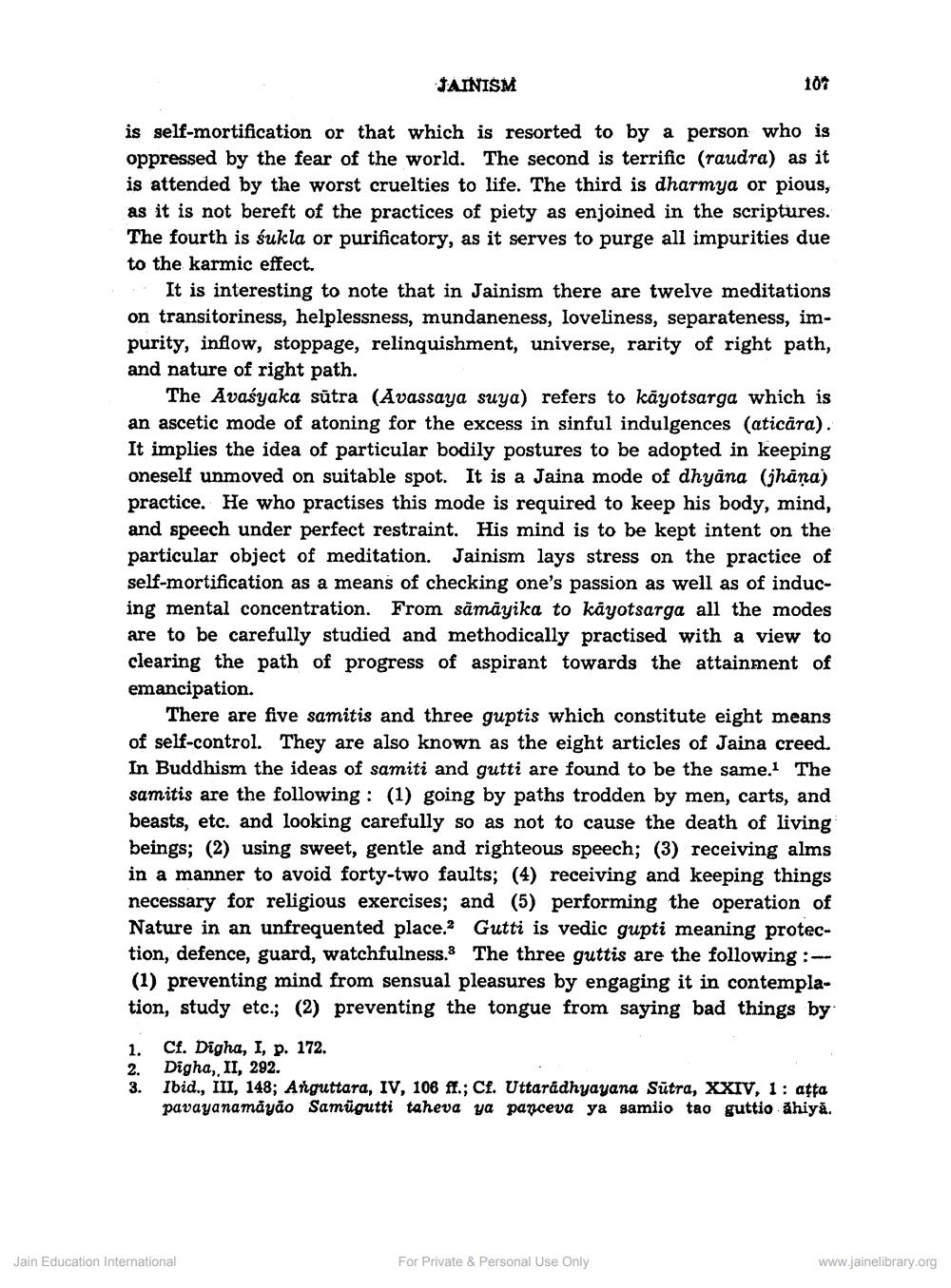________________
JAINISM
107
is self-mortification or that which is resorted to by a person who is oppressed by the fear of the world. The second is terrific (raudra) as it is attended by the worst cruelties to life. The third is dharmya or pious, as it is not bereft of the practices of piety as enjoined in the scriptures. The fourth is śukla or purificatory, as it serves to purge all impurities due to the karmic effect.
It is interesting to note that in Jainism there are twelve meditations on transitoriness, helplessness, mundaneness, loveliness, separateness, impurity, inflow, stoppage, relinquishment, universe, rarity of right path, and nature of right path.
The Avaśyaka sutra (Avassaya suya) refers to kāyotsarga which is an ascetic mode of atoning for the excess in sinful indulgences (aticāra). It implies the idea of particular bodily postures to be adopted in keeping oneself unmoved on suitable spot. It is a Jaina mode of dhyāna (hāņa) practice. He who practises this mode is required to keep his body, mind, and speech under perfect restraint. His mind is to be kept intent on the particular object of meditation. Jainism lays stress on the practice of self-mortification as a means of checking one's passion as well as of inducing mental concentration. From sämäyika to käyotsarga all the modes are to be carefully studied and methodically practised with a view to clearing the path of progress of aspirant towards the attainment of emancipation.
There are five samitis and three guptis which constitute eight means of self-control. They are also known as the eight articles of Jaina creed. In Buddhism the ideas of samiti and gutti are found to be the same. The samitis are the following: (1) going by paths trodden by men, carts, and beasts, etc. and looking carefully so as not to cause the death of living beings; (2) using sweet, gentle and righteous speech; (3) receiving alms in a manner to avoid forty-two faults; (4) receiving and keeping things necessary for religious exercises; and (5) performing the operation of Nature in an unfrequented place. Gutti is vedic gupti meaning protection, defence, guard, watchfulness. The three guttis are the following: (1) preventing mind from sensual pleasures by engaging it in contemplation, study etc.; (2) preventing the tongue from saying bad things by 1. Cf. Digha, I, p. 172. 2. Digha, II, 292.
Ibid., III, 148; Arguttara, IV, 106 ff.; Cf. Uttaradhyayana Sūtra, XXIV, 1: atta pavayanamayão Samügutti taheva ya panceva ya samiio tao guttio ahiya.
Jain Education International
For Private & Personal Use Only
www.jainelibrary.org




